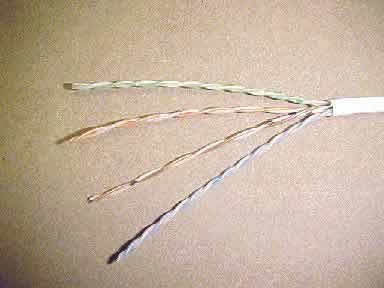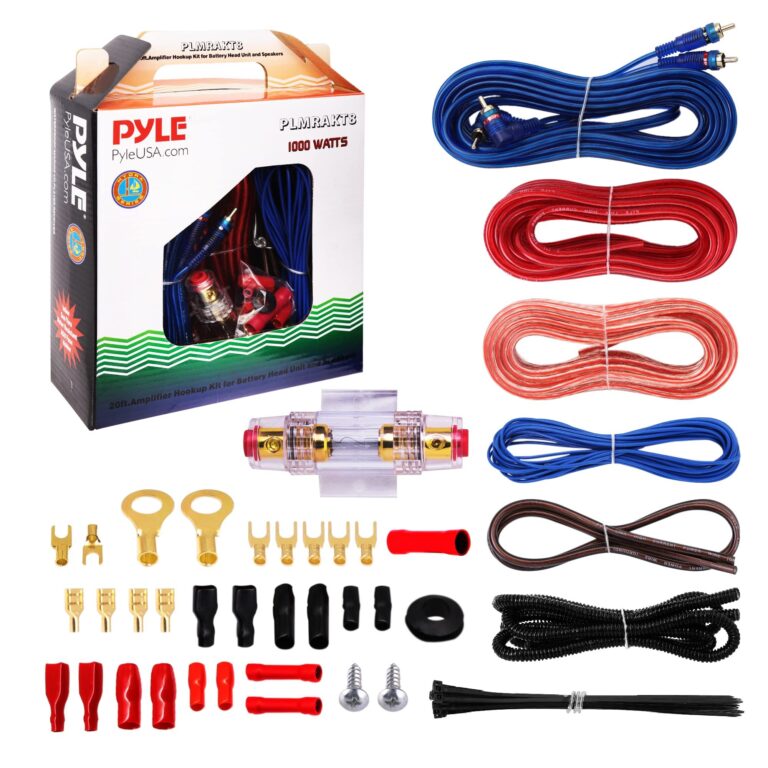Can Speaker Wire Spark Fires? An Expert Investigation
Can speaker wire start a fire? The answer is a resounding yes, and in this blog article, we will delve into the potential dangers of speaker wire and how to mitigate the risk. While speaker wire may seem harmless, it has the potential to cause fires if not properly installed or if it becomes damaged. We will explore common causes of speaker wire fires, provide tips for safe installation, and offer practical solutions to ensure your home remains fire-free. So, let’s get started and shed light on the often overlooked hazards associated with speaker wires.
Can Speaker Wire Start a Fire?
When it comes to the safety of our homes and the electrical systems within them, it’s important to understand the potential hazards and risks that exist. Speaker wire is commonly used to connect speakers to amplifiers or audio systems, but can it start a fire? In this article, we will delve into the subject of whether speaker wire can pose a fire hazard and explore various factors that may contribute to its safety or potential danger.
The Basics of Speaker Wire
Before we delve into the potential fire risks associated with speaker wire, let’s first understand what it is and how it functions. Speaker wire is a cable specifically designed for transmitting audio signals from an audio source to a speaker. It consists of two electrical conductors (usually copper) that are insulated and paired together.
The gauge or thickness of speaker wire can vary, with lower gauge numbers indicating thicker wire. Thicker wire generally allows for better sound quality, especially for longer cable runs. However, the gauge of the wire does not directly affect its potential to start a fire.
Electrical Current and Heat
To understand the potential fire hazard of speaker wire, it’s crucial to grasp the concept of electrical current and heat generation. When electrical current flows through a conductor like speaker wire, it encounters resistance. This resistance causes the wire to heat up to some extent.
The amount of heat generated depends on multiple factors, such as the amount of current passing through the wire, the wire’s resistance, and the duration of current flow. If the wire’s insulation or surrounding materials cannot handle the heat generated, there is a risk of fire.
Factors That May Cause a Fire
While speaker wire itself does not inherently start fires, certain factors can increase the likelihood of a fire occurring. It’s important to consider these factors and take appropriate precautions to minimize any potential risks.
1. Overloading the Wire
One common cause of electrical fires is overloading the wire with excessive current. If you connect speakers or audio equipment that require more power than the wire can safely handle, it can lead to overheating and potentially ignite nearby materials.
To prevent overloading, it’s important to ensure that the speaker wire you use can handle the amount of power required by your speakers or audio system. Be mindful of the wattage rating of your equipment and select appropriately sized wire that can handle the current without overheating.
2. Damaged or Exposed Wiring
Speaker wire that is damaged or has exposed conductors can increase the risk of fire. When the conductor comes into contact with flammable materials, it can generate heat and cause a fire. Additionally, damaged insulation can lead to short circuits, which may result in sparks or overheating.
Regularly inspect your speaker wire for any signs of wear, cuts, or damage. If you notice any issues, it’s crucial to replace the wire immediately to prevent potential fire hazards.
3. Incorrect Wiring Installation
Improper installation of speaker wire can also contribute to fire hazards. If the wire is not securely connected or if the connections are loose, it can lead to resistance and generate heat. Loose connections may also cause sparks or arcing, potentially igniting nearby combustible materials.
Always follow the manufacturer’s guidelines and recommended installation procedures when connecting speaker wire. Ensure that the wire connections are tight, secure, and free from any loose strands that could cause short circuits or overheating.
4. Inadequate Heat Dissipation
Heat dissipation is an essential aspect of electrical safety. When speaker wire heats up due to current flow, the surrounding environment should be able to dissipate that heat effectively. If the wire is enclosed in a tight space or trapped under carpets, it can prevent proper heat dissipation, leading to a potential fire hazard.
Avoid running speaker wire through walls, insulation, or under carpets unless specifically designed for in-wall use. Use wire management solutions or cable conduits to ensure adequate ventilation and prevent heat buildup.
Preventing Fire Hazards
To minimize the risk of fire associated with speaker wire, here are some important preventive measures you can take:
- Choose the appropriate gauge of wire for your specific audio system.
- Regularly inspect and replace damaged or exposed speaker wire.
- Use wire insulation and sheathing suitable for in-wall installations, if applicable.
- Ensure proper and secure connections between the wire and audio equipment.
- Avoid overloading the wire with excessive power demands.
- Provide adequate ventilation and avoid trapping the wire in tight spaces.
While speaker wire itself does not typically start fires, certain factors can increase the risk of fire. Overloading the wire, damaged or exposed wiring, incorrect installation, and inadequate heat dissipation are all factors to consider. By following proper installation procedures, regularly inspecting the wire, and taking necessary precautions, you can minimize the potential fire hazards associated with speaker wire. Remember, electrical safety should always be a top priority in your home to protect yourself, your loved ones, and your property.
Frequently Asked Questions
Can speaker wire start a fire?
Yes, speaker wire can potentially start a fire if certain conditions are present.
What are the conditions that can cause speaker wire to start a fire?
Speaker wire can cause a fire if there is a short circuit or if the wire is overloaded with excessive current.
How does a short circuit in speaker wire lead to a fire?
A short circuit occurs when the positive and negative wires touch, creating a low-resistance path for the electrical current. This can cause the wires to overheat, leading to a potential fire hazard.
What can cause excessive current in speaker wire?
Excessive current in speaker wire can be caused by mismatched impedance, incorrect wiring, or using speakers with an impedance lower than what the amplifier or receiver can handle. This can result in the wires heating up and potentially starting a fire.
How can I prevent speaker wire from causing a fire?
To prevent speaker wire from causing a fire, make sure to use the correct gauge wire for your speakers and amplifier, properly connect and insulate the wires, and avoid overloading the system with excessive volume or power.
What are some safety precautions I can take with speaker wires?
Some safety precautions you can take with speaker wires include keeping them away from flammable materials, regularly inspecting the wires for any signs of damage or wear, and ensuring that the wires are not pinched or crimped in any way.
Final Thoughts
In conclusion, it is important to be aware that speaker wire has the potential to start a fire if it is not installed or used properly. The risk arises from factors such as exposed or damaged wires, poor insulation, and overloading the wires with excessive power. To minimize the risk of fires, it is crucial to follow safety guidelines, such as using the correct gauge of wire, ensuring proper insulation, and avoiding overloading the system. Regular inspections and maintenance are necessary to detect any issues and promptly resolve them. By being vigilant and taking necessary precautions, you can significantly reduce the likelihood of a fire caused by speaker wire.






